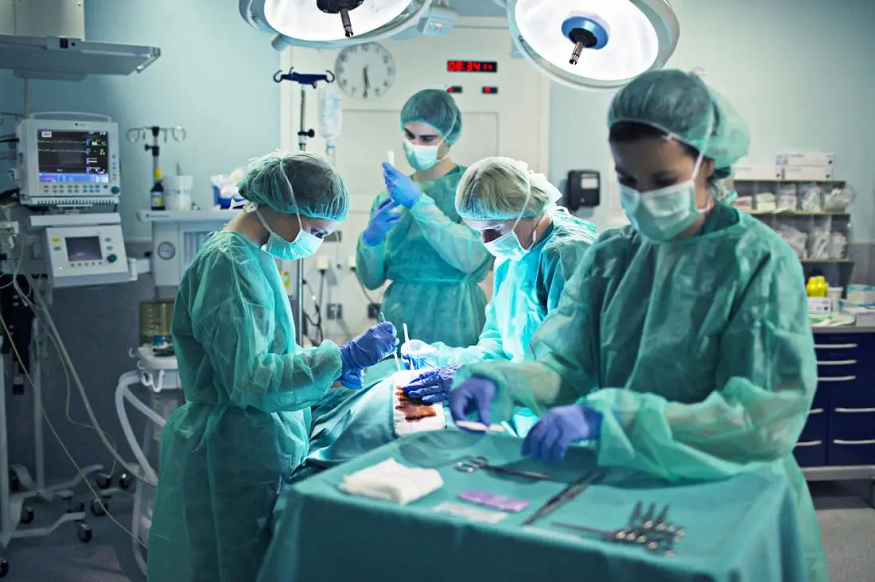Hernias are not uncommon in the United States, according to Medscape, 10% of the population develop some type of Hernia during their life. Though there are non-surgical methods to deal with a hernia, the prevalence of hernia surgeries explains the gravity of the situation. According to the USFDA, the number of hernia surgeries around the world is estimated to be nearly 20 million. If you are a resident of Dallas and are in search of surgical solutions for hernia repair, you must consult the best surgeons for hernia surgery in Dallas. You can start by searching with keywords such as ‘hernia surgery in Dallas’, but before that continue reading as we answer some of the commonly asked questions about the hernia surgery.
1. What is Hernia?
Hernia is defined as the medical condition in which an internal organ protrudes through the muscle or structure that holds it. Some of the common symptoms of hernia include noticeable bulge which may or may not be painful. It is also common to see the protrusion disappearing when changing body posture. Sometimes hernia is not as prominent in obese patients as others, this is why is not uncommon to see patients undergoing a weight loss surgery to get hernia repair simultaneously.
2. What are the different types of Hernias?
With nearly 800,000 hernia repair surgeries, Inguinal Hernia accounts for 75% of the total cases of hernia. Let’s have a look at the various types of hernias:
- Inguinal Hernia: Inguinal hernia is characterized by the protrusion of a portion of intestines into the inguinal canals in the lower abdominal. According to a study, men are 9 times more vulnerable to developing an inguinal hernia than women.
- Femoral hernias: This hernia is characterized by the protrusion of adipose tissue (fatty tissue) or bowel into the groin at the top of the inner thigh. Femoral hernias are more likely to occur in women as compared to men.
- Ventral hernias: In this type of hernia, the intestine or other tissues protrude through a gap in the abdominal wall. There are three types of ventral hernias:
- Epigastric hernias: Occurs above the navel.
- Incisional hernias: Occurs due to incisions from previous abdominal surgeries that have weakened the abdominal muscles.
- Umbilical hernias: Commonly seen in premature newborns, Umbilical hernias occur near the naval area.
- Hiatal hernias: It occurs when the opening part of the stomach (cardiac region) protrudes into the chest through the small opening in the diaphragm called the hiatus. This is the only type of hernia in which there is no visible external lump on the body. Some of the symptoms of hiatal hernia include heartburn and regurgitation of food.
3. What are the options available in Hernia surgery?
Not all types of hernia need immediate repair. It is only when the hernia is causing tissue or organ incarceration or strangulation or continuing to grow in size causing pain, that a hernia repair surgery is recommended. When it comes to understanding the surgical options for hernia, there are two primary methods:
- Open Hernia Surgery: In this surgical procedure, the surgeon makes a cut in the groin area to observe and adjust the hernia, after which they stitch the area back up. Sometimes, a piece of mesh cloth is also stitched close to the abdominal wall to ensure the weak area where the hernia was repaired doesn’t collapse.
- Laparoscopic Hernia Surgery: In this surgical procedure, the surgeon makes several very small incisions in the lower abdomen and uses special tools to observe and adjust the hernia. Here also, the mesh cloth is used sometimes. This procedure is also done using robotic arms.
Consultation with a doctor nearby will help clear things like whether a surgery is needed and which one is suitable for your health condition and budget. If you are a resident of Dallas and suffering from hernia, search for the leading surgeon known for conducting the best inguinal, ventral and hiatal hernia surgery in Dallas.
4. What are the ways to manage post-surgical pain?
Though hernia surgeries don’t cause severe postoperative pain, instances of slight to moderate pain can be managed with medications such as ibuprofen (Motrin, Advil, etc.) and acetaminophen (Tylenol), which can be optionally served with opioids strictly on advice of your doctor. Opioids should be taken with great caution due to the possible risk of their side effects such as complications in urinating post-surgery, and postoperative urinary retention (men above 50). Taking drugs as advised before surgery, particularly those for benign prostatic hyperplasia, which is characterized by prostate enlargement, aids in preventing postoperative urine retention. Under physician supervision, treatments such as consuming acetaminophen for pain and a modest dosage of promethazine to avoid nausea may also be taken before surgery to decrease postoperative discomfort and nausea. Consult your doctor or surgeon to understand the viable pain management solutions for you.
Conclusion
Treating a hernia is not a cakewalk, however, with the supervision of an experienced doctor, desired results can be achieved. Dallas residents in desperate need of help for hernia repair,with rich experience in hernia surgeries and who offers a range of methods for conducting hernia surgery in Dallas.



